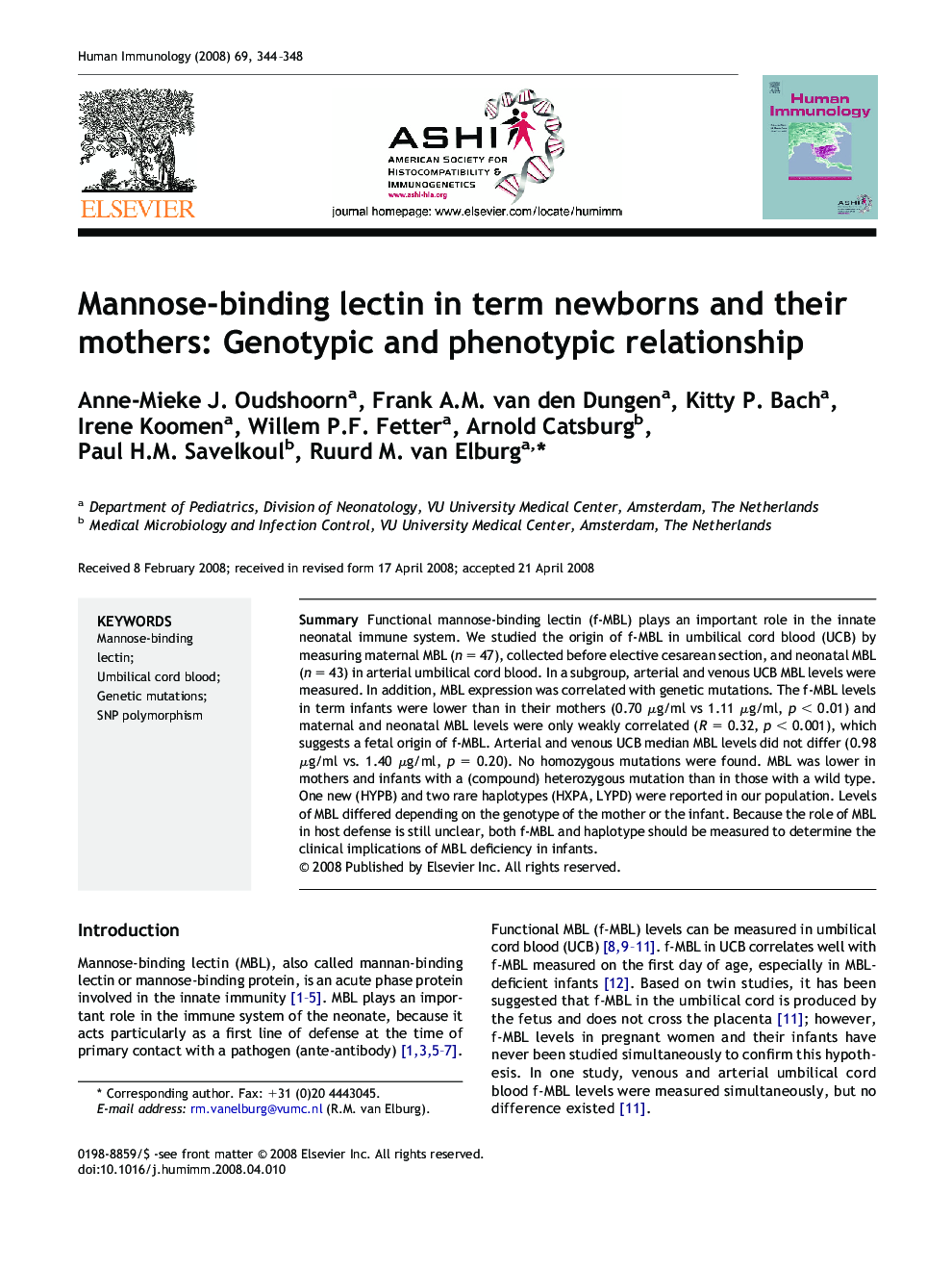| Article ID | Journal | Published Year | Pages | File Type |
|---|---|---|---|---|
| 3351741 | Human Immunology | 2008 | 5 Pages |
SummaryFunctional mannose-binding lectin (f-MBL) plays an important role in the innate neonatal immune system. We studied the origin of f-MBL in umbilical cord blood (UCB) by measuring maternal MBL (n = 47), collected before elective cesarean section, and neonatal MBL (n = 43) in arterial umbilical cord blood. In a subgroup, arterial and venous UCB MBL levels were measured. In addition, MBL expression was correlated with genetic mutations. The f-MBL levels in term infants were lower than in their mothers (0.70 μg/ml vs 1.11 μg/ml, p < 0.01) and maternal and neonatal MBL levels were only weakly correlated (R = 0.32, p < 0.001), which suggests a fetal origin of f-MBL. Arterial and venous UCB median MBL levels did not differ (0.98 μg/ml vs. 1.40 μg/ml, p = 0.20). No homozygous mutations were found. MBL was lower in mothers and infants with a (compound) heterozygous mutation than in those with a wild type. One new (HYPB) and two rare haplotypes (HXPA, LYPD) were reported in our population. Levels of MBL differed depending on the genotype of the mother or the infant. Because the role of MBL in host defense is still unclear, both f-MBL and haplotype should be measured to determine the clinical implications of MBL deficiency in infants.
